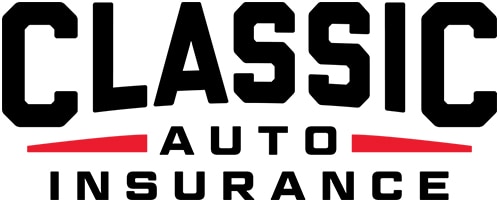The Porsche 911 and 912 are undoubtedly two of the most iconic cars in the history of Porsche. Through the years, the two vehicles have established themselves as two of Porsche’s best cars, and their enduring popularity among car enthusiasts is a testament to their timeless appeal.
The 911 first hit the market in 1964, and the 912, essentially a budget version of the 911, debuted the following year. Although a less expensive alternative to the 911, the 912 still had much to appreciate. and it developed its own loyal following thanks to its impressive performance and handling.
In this blog, we’ll contribute our two cents to the age-old debate — Porsche 912 vs 911: which is better?
History of the Porsche 912
The Porsche 912 made its debut in 1965 following the launch of the Porsche 911 in September 1964. The 912 was designed as a more affordable alternative to the 911, using many of the same components but with a few key differences to lower the price. Visually, the Porsche 912 closely resembled the 911, with a body style very similar to the Porsche 911 coupe, and it sported the iconic Porsche crest on its hood.
One major reason why Porsche released the 912 was due to poor sales of the pricey six-cylinder 911. The 912 was $2,000 cheaper than the 911’s $6,500 sales price. It provided consumers with a Porsche that’s specifications and price were somewhere between the older Porsche 356 and the new 911. Eventually, the 911 became a popular vehicle among motor enthusiasts thanks to its impressive engine, but the 912 still sold many more units because of its more attainable sales price. In fact, Porsche sold twice as many 912s as 911s in 1967.
Although the motor-loving public often regards the 912 as inferior to the 911 — and in some ways, it is — appreciation of the 912 grew substantially in the early 2000s, and it became a much-celebrated vintage sports car.
Porsche 911 Vs. Porsche 912: Engine Specifications
One of the most important Porsche 911 incentives is its engine. While the first iteration of the 911 boasted a powerful 1991 cc air-cooled flat-six engine, the 912 had a 1582 cc air-cooled flat-four engine. The 911 had five different engine options through the years that ranged in size from 1987 cc to 2404 cc, spanning between 128 and 190 horsepower. The engine sends power through either a 5-speed manual or 4-speed semi-automatic transmission.
The 912’s 1582 cc air-cooled flat-four engine enabled the car to sell for a cheaper price, but, unsurprisingly, it is inferior to the 911’s engine. The Type 616/34 B4 engine came from the Porsche 356 and weighs far less than the 912’s powerhouse engine. Porsche detuned the 912’s engine to 90 horsepower at 5,800 revolutions per minute and mated it with a 4-speed manual transmission. Eventually, Porsche swapped the 356 engine with a Volkswagen Type 4 H4 to align with new fuel regulations.
Although outpaced by the 911, the 912 was perfectly suitable for the majority of the Porsche-loving public, and these cars are usually more fuel efficient than the 911 due to their lighter weight and smaller engine size.
Similarities and Differences in the Porsche 911 and 912 Interiors
The interiors of the Porsche 911 and Porsche 912 models share many similarities, especially in their earlier years of production. Both models typically feature a driver-oriented cockpit with a minimalist design and high-quality materials, such as leather, aluminum, and chrome accents. Plus, both typically feature a leather-wrapped steering wheel with a simple design and a Porsche emblem in the center.
One distinct difference between the two was their dashboards. The early iterations of the 912 came with a three-gauge cluster, but later, Porsche provided the full five-gauge cluster that’s also within the 911. Another key difference is the cars’ instrumentation — the 912 didn’t come with the 911’s oil level and oil pressure gauges.
The Porsche 912’s Superior Handling
While the Porsche 911 is known for its superior performance, the Porsche 912 by and large has better handling due to its lighter weight and simpler design. When it was first released, the 912 had curbside weight sitting around 2,095 pounds while the 912 was approximately 2,381 pounds, a pretty substantial difference that impacts the vehicles’ performances.
The 912 is more nimble and agile on the road, allowing for more precise handling and control. Additionally, the car is more aerodynamic, allowing for even better handling and drivability.
If you’re taking a spin in a classic Porsche on a curvy road, you would likely prefer the 912 instead of the technically-superior 911.
Get Great Insurance On Your Classic Porsche
While the Porsche 911 incentives are valuable for those looking for superior raw power and speed, the Porsche 912’s lighter weight and simpler design may provide better handling and a more engaging driving experience for some drivers. Furthermore, classic 912s typically have better fuel efficiency than classic 911s.
So, which is better?
The truth is that it depends on what you’re looking for. Which do you prefer, speed or handling?
Regardless of which classic Porsche you have in your collection, you need classic car insurance to protect your cherished beauty, and you can get premium and affordable insurance through Classic Auto.
With Classic Auto Insurance, you’ll pay lower premiums than traditional auto insurance policies, and we’ll work with you to determine your car’s true value. If you total your classic Porsche, you’ll receive the full agreed-upon amount after paying your deductible.
Our policies also offer tremendous benefits like inflation guard, rollover miles, and nationwide roadside assistance with flatbed towing, all of which aim to give you the peace of mind that you’ll be able to continue driving your stunning classic for years to come.
Ready to learn more? Call our classic car experts today at 888-901-1338, or you can click here for an instant quote.





